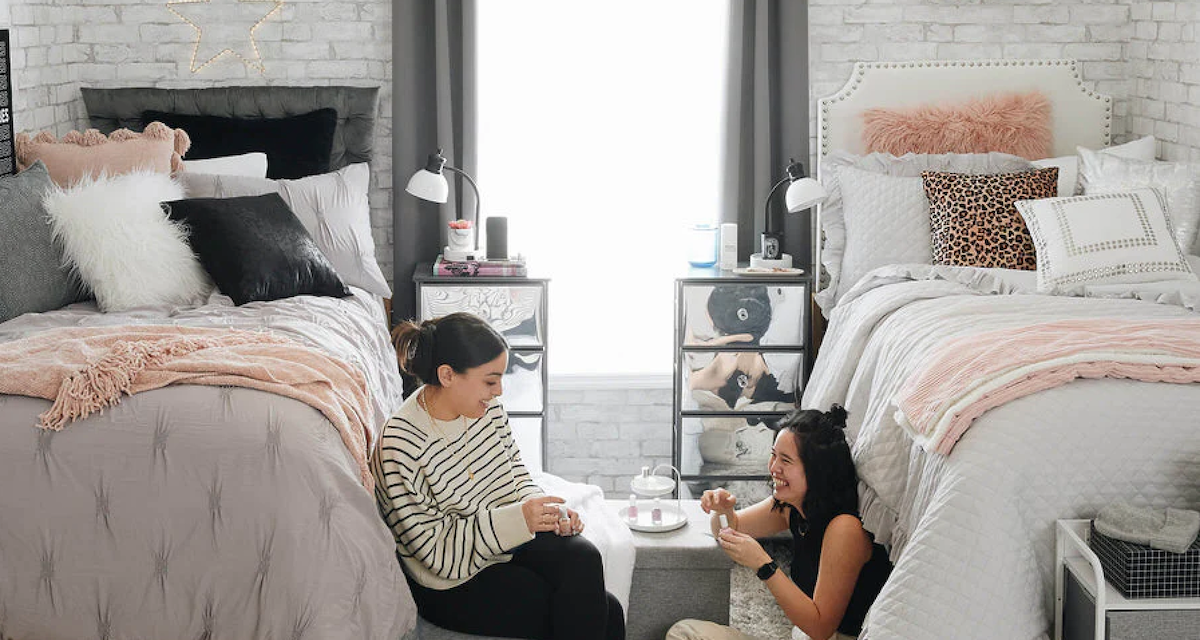Dormify is tapping into TikTok trends to better woo upperclassmen

Room and decor retailer Dormify is switching up its approach and looking into popular apps like TikTok this back-to-school season to court older college students.
Founded in 2011, Dormify sells bedding, furniture and decorations for small spaces such as dorms and apartments. It mostly caters to students and young adults; according to a recent survey, 87% of its customers are between the ages of 17 and 20.
The majority of Dormify’s customers are freshmen, cofounder Amanda Zuckerman told Modern Retail, but the company is now focused on bringing in more upperclassmen. Rather than being dependent on freshmen for a one-time purchase, Dormify is seeking out areas of product expansion like barware and furniture to keep customers coming back. It’s also trying to tap into TikTok trends and use its college ambassadors to source new product ideas to better connect with sophomores, juniors and seniors. Nineteen percent of Dormify’s customers identify as upperclassmen, Zuckerman said.
Dormify caters to students and parents alike, and “as a lifestyle business, we don’t want to lose the customer after their first intent to shop with us,” Zuckerman said. So, to stay top-of-mind, Dormify is adding in more items for the common room, bathroom and kitchen. “When you’re a freshman… you don’t have those basic needs at that point, so through our marketplace strategy, we are able to onboard… vendors to really fill out those categories,” Zuckerman added.
One of the biggest new products Dormify is testing out this year is bar carts, Zuckerman said. Dormify has not offered bar carts in years past, but the company noticed that “it’s one of the big trends for upperclassmen apartments,” Zuckerman explained. “It’s become a very TikTok and social media-fueled thing,” she continued. “They have their cute bar cart, they have a nice neon light above it, they have prints.”
Dormify now sells a two-tier round bar cart for $100. It’s available in black and brass, and the black option is so popular that it’s sold out online. To complement this, Dormify offers drink-themed posters. It currently offers cocktail prints in three sizes: 9″x12″ ($19), 16″x20″ ($22) and 18″x24″ ($25). “We’ve really expanded our assortment of alcohol-related prints, because that’s what they want,” Zuckerman said.
For the kitchen, Dormify is focused on small appliances like a 12-can mini-fridge, an egg cooker and a sink water filter, all of which were added over the last year. And, while Dormify already sells items such as rugs, lighting and decorative pillows, it’s now trying to re-envision those items for communal areas, especially in its marketing materials and partnerships. For example, earlier this summer, Dormify launched store-within-a-store pop-ups in Container Stores in five cities: New York City, Austin, Costa Mesa, Houston and Nashville. Another 35 Container Stores have smaller Dormify displays with QR codes to order items online.
Ad position: web_incontent_pos1
Dormify is also expanding outside home decor in categories such as fitness, personal care and electronics. At the end of September, it launches a new partnership with the Sculpt Society, which offers visual dance and cardio workouts. To mark the partnership, Dormify will sell a bundle of fitness-related items such as bands and bangles that customers can use in small spaces such as apartments. Dormify will also offer a student subscription to the Sculpt Society, the first time it’s ever sold a subscription through the Dormify platform.
Dormify relies on its social channels for feedback from and outreach to new customers. Dormify does not pay for content, Zuckerman said, so all views are 100% organic. Dormify’s social media team and interns regularly scour platforms like TikTok and Instagram to see what people are interested in. “We’re looking at user-generated content and seeing how people are decorating with and without Dormify products and bringing that internally to really analyze what the trends are out there,” Zuckerman said.
In addition, Dormify has a network of some 2,000 ambassadors, 52% of which are upperclassmen students. Dormify ambassadors create content around the brand and share personalized discount codes to their followers. In exchange, they earn points to shop their wishlists and receive exclusive discounts and rewards. Dormify communicates with these ambassadors through the app Geneva via open-ended questions and polls. “It’s really one of our best sources of feedback,” Zuckerman said.
Kimberley Ring Allen, founder of Ring Communications and adjunct professor at Suffolk University, said social campaigns are a good way for brands like Dormify to cultivate customers of different ages. “Social is always going to be strong in young Gen Z and older Gen Z,” Allen told Modern Retail. “They should lean into creators and affiliates.”
Right now, many TikTok videos with the hashtag #dormify have to do with sorority rush efforts. A Dormify video posted last year about “sororities as dorm rooms” has more than 72,000 likes. A video posted on August 11 from user Sofia Federico showing her dorm room with Dormify products has 285,000 likes.
Ad position: web_incontent_pos2
Dormify’s number two university for customers is the University of Alabama, which had its Bid Day Sunday morning. Dormify has 37 ambassadors at the University of Alabama. Its top ambassador at the university, Emma Kate Tucker, has 11,100 followers and her videos have amassed 1.2 million likes.

